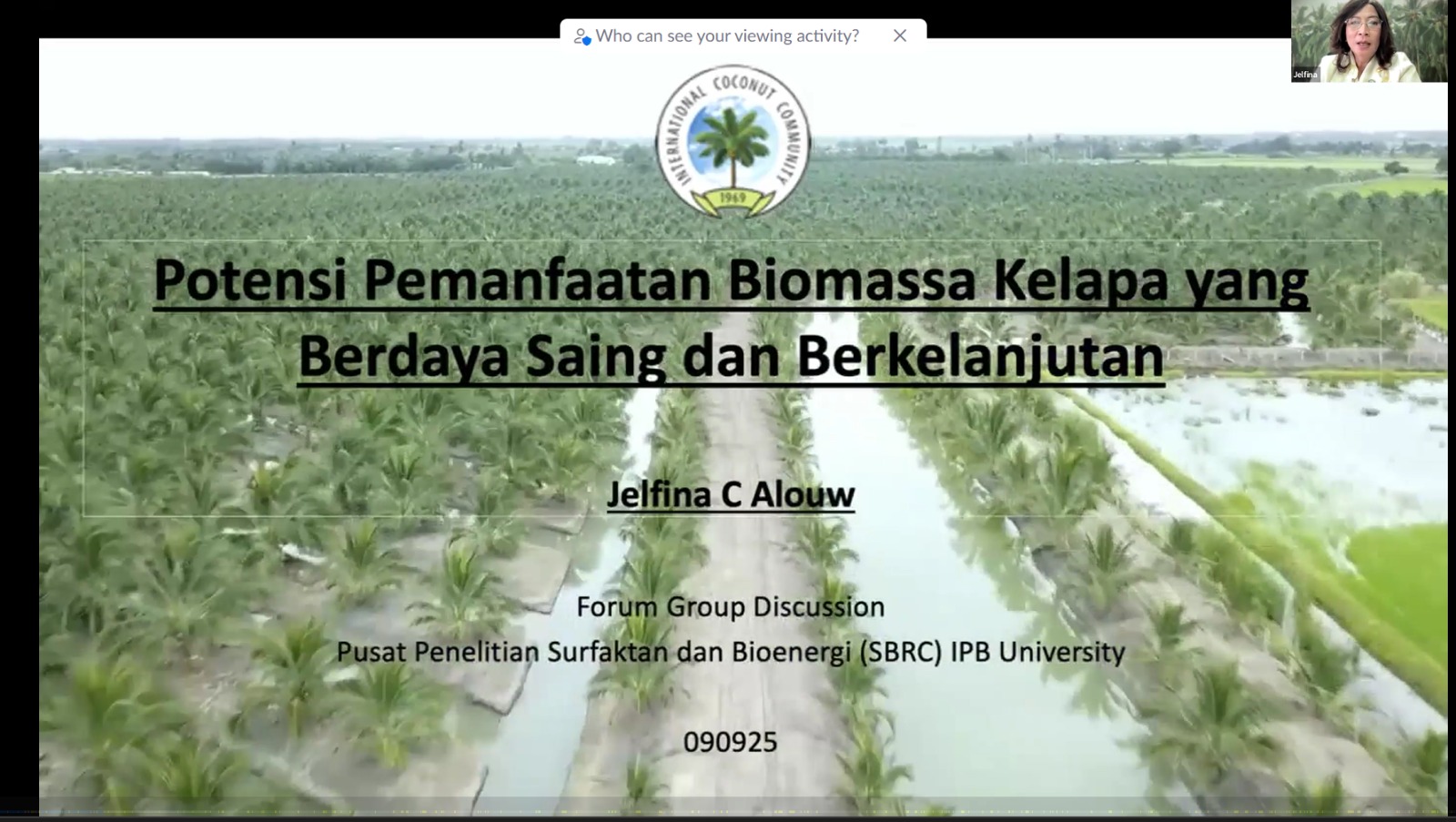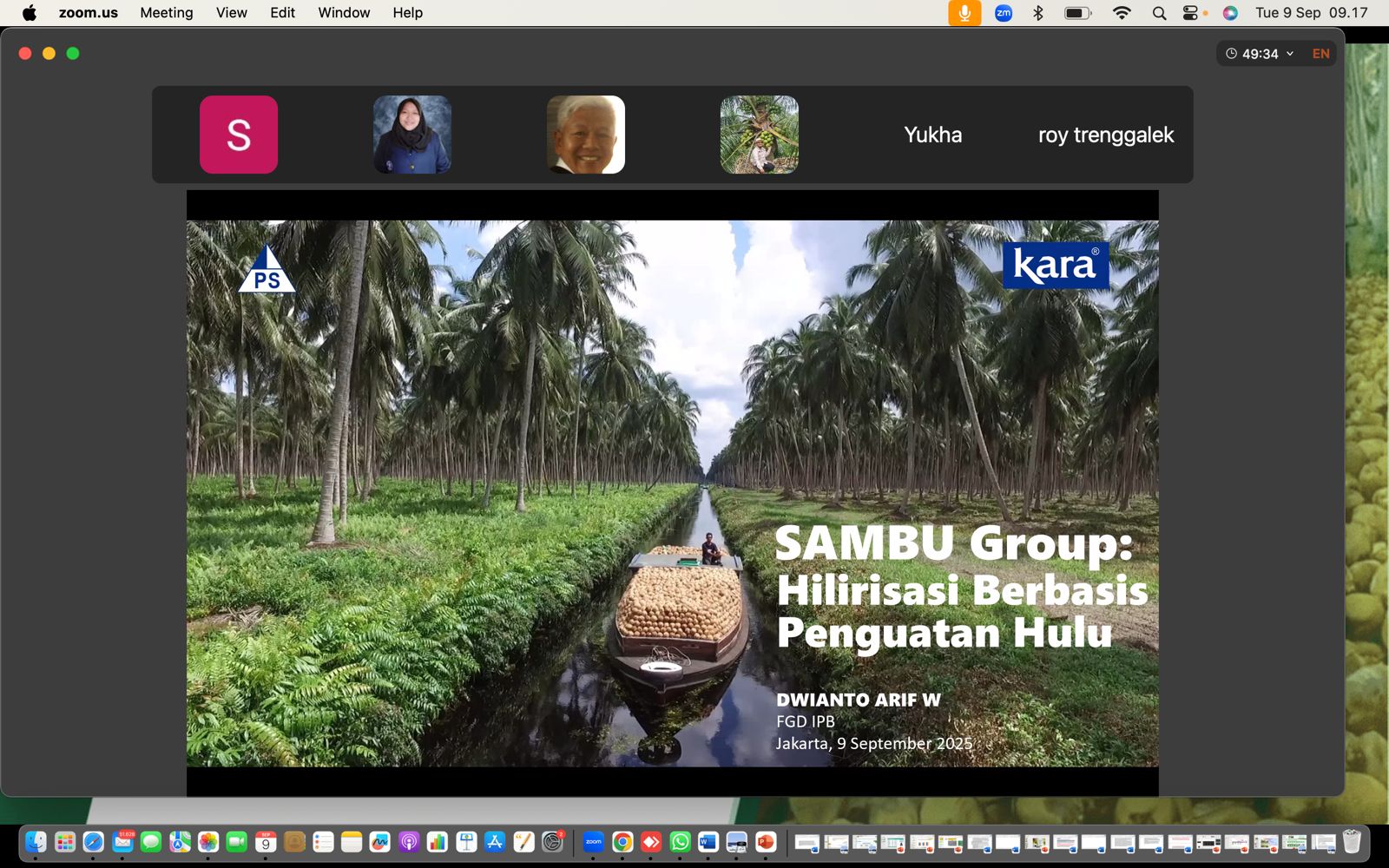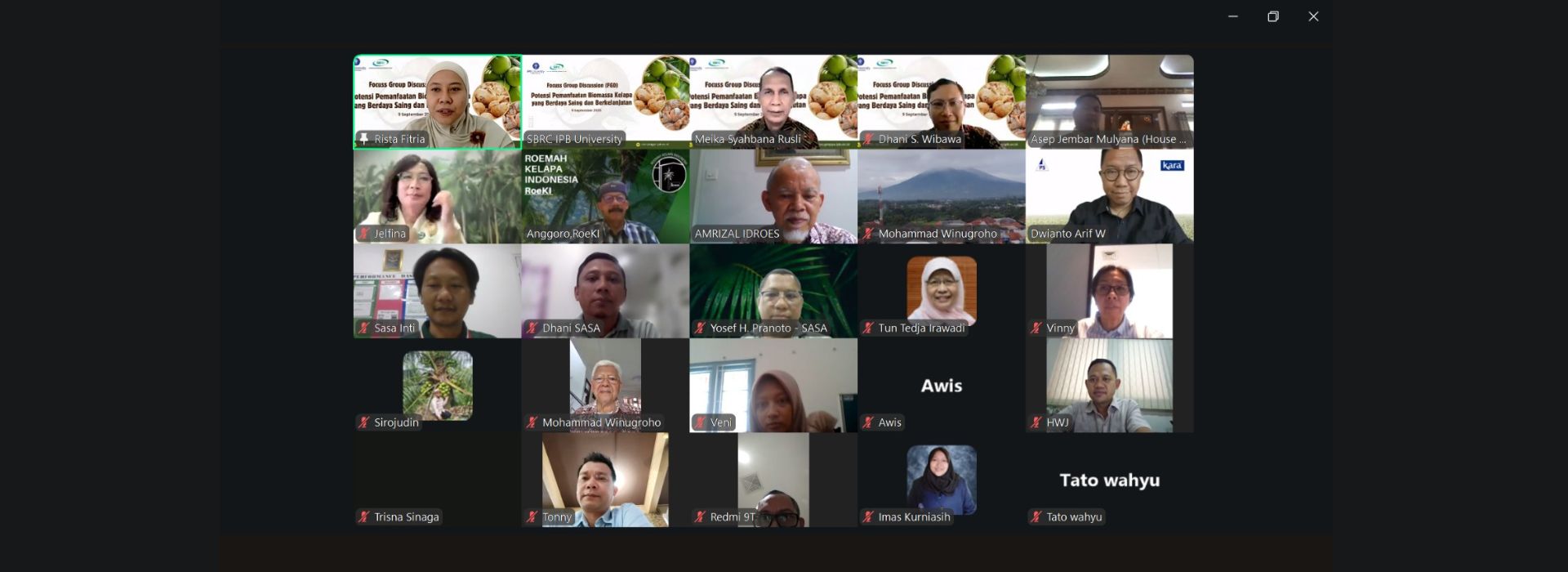On September 9, 2025, Dr. Jelfina Alouw, Director-General of the International Coconut Community (ICC), actively participated in the Focus Group Discussion (FGD) on the Potential for Competitive and Sustainable Utilization of Coconut Biomass, hosted by the Center of Surfactant and Bioenergy, Faculty of Mathematics and Natural Sciences, IPB University. The forum brought together academia, government representatives, private sector leaders, farmer associations, and international organizations to exchange perspectives on how to maximize the value of coconut biomass in Indonesia.

Dr. Alouw delivered a presentation on the availability of coconut biomass and its utilization in Indonesia, highlighting the significant volumes of by-products such as shells, husks, fiber, and other residues generated from coconut processing. She underscored how these materials—often considered waste—carry substantial potential as raw materials for industries including bioenergy, activated carbon, and eco-friendly products. She further shared a detailed analysis of production data, price trends of coconuts and their derivatives, as well as supply-demand dynamics at both the national and international levels. Her presentation emphasized that the efficient and sustainable use of biomass can increase value addition, enhance farmers’ incomes, and contribute to renewable energy development.
The Head of the Center of Surfactant and Bioenergy, Dr. Ir. Meika Syahbana Rusli, MSc.Agr, expressed his appreciation for the presence of ICC and other stakeholders, noting that the FGD was designed to deepen understanding of the integrated coconut industry supply chain and to identify opportunities and challenges in the competitive and sustainable use of coconut biomass.
Private sector contributions provided valuable practical perspectives. Pak Arif from PT. Pulau Sambu presented the company’s integrated and sustainable approach to managing the coconut supply chain, while a representative from Charcoal House highlighted global market opportunities and challenges for coconut charcoal. Farmer and industry associations, namely APKI (Indonesian Coconut Farmers Association) and HIPKI (Indonesian Coconut Processing Industry Association), also contributed their experiences and insights, ensuring that both upstream and downstream voices were represented in the discussion.

The FGD concluded with a strong sense of optimism. Participants agreed on the urgency of implementing Indonesia’s newly launched downstreaming roadmap to accelerate the growth of the coconut industry, particularly by adding value through biomass utilization. The collaborative atmosphere of the event reflected a shared vision: to transform coconut biomass into a competitive and sustainable driver of economic growth, environmental resilience, and social development for Indonesia’s coconut sector.

